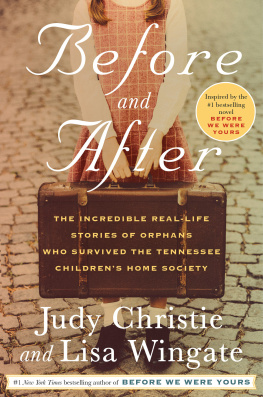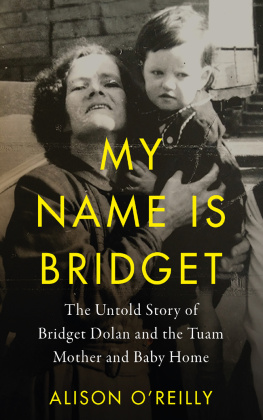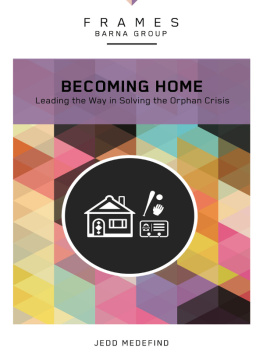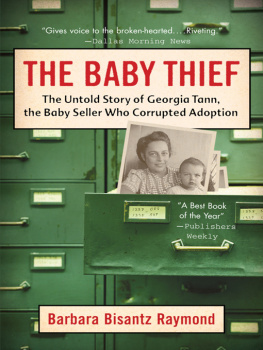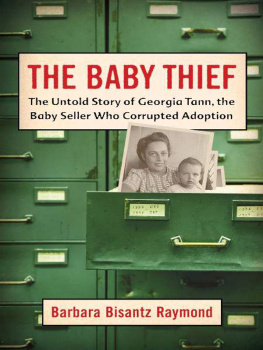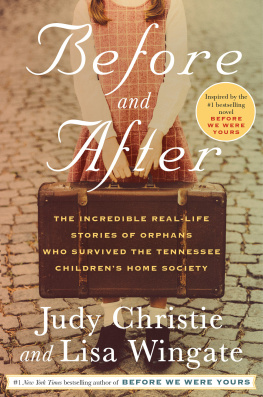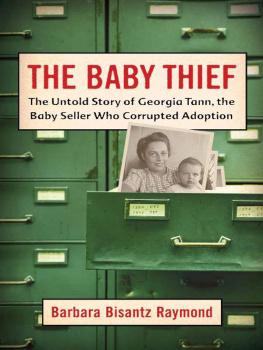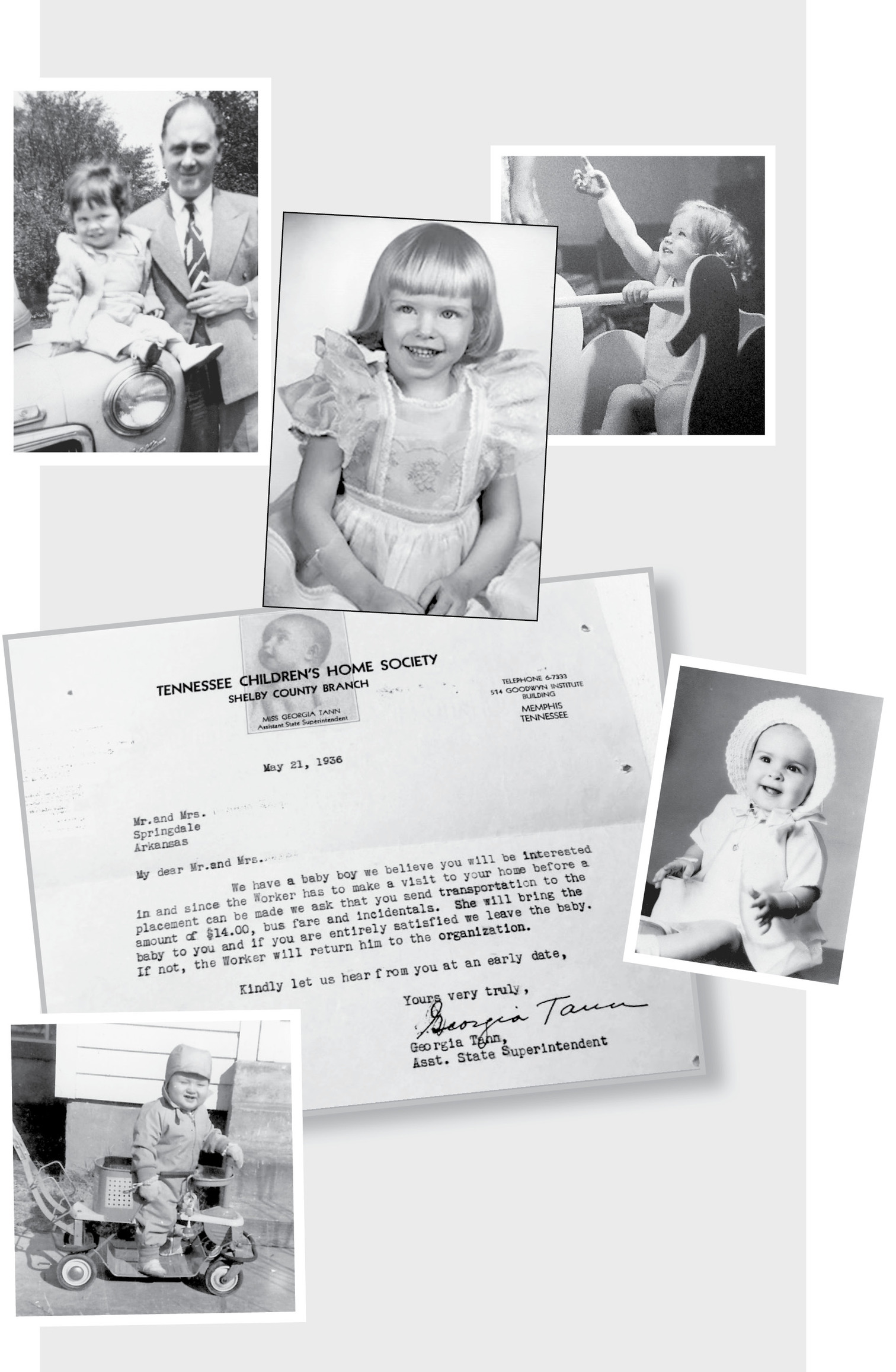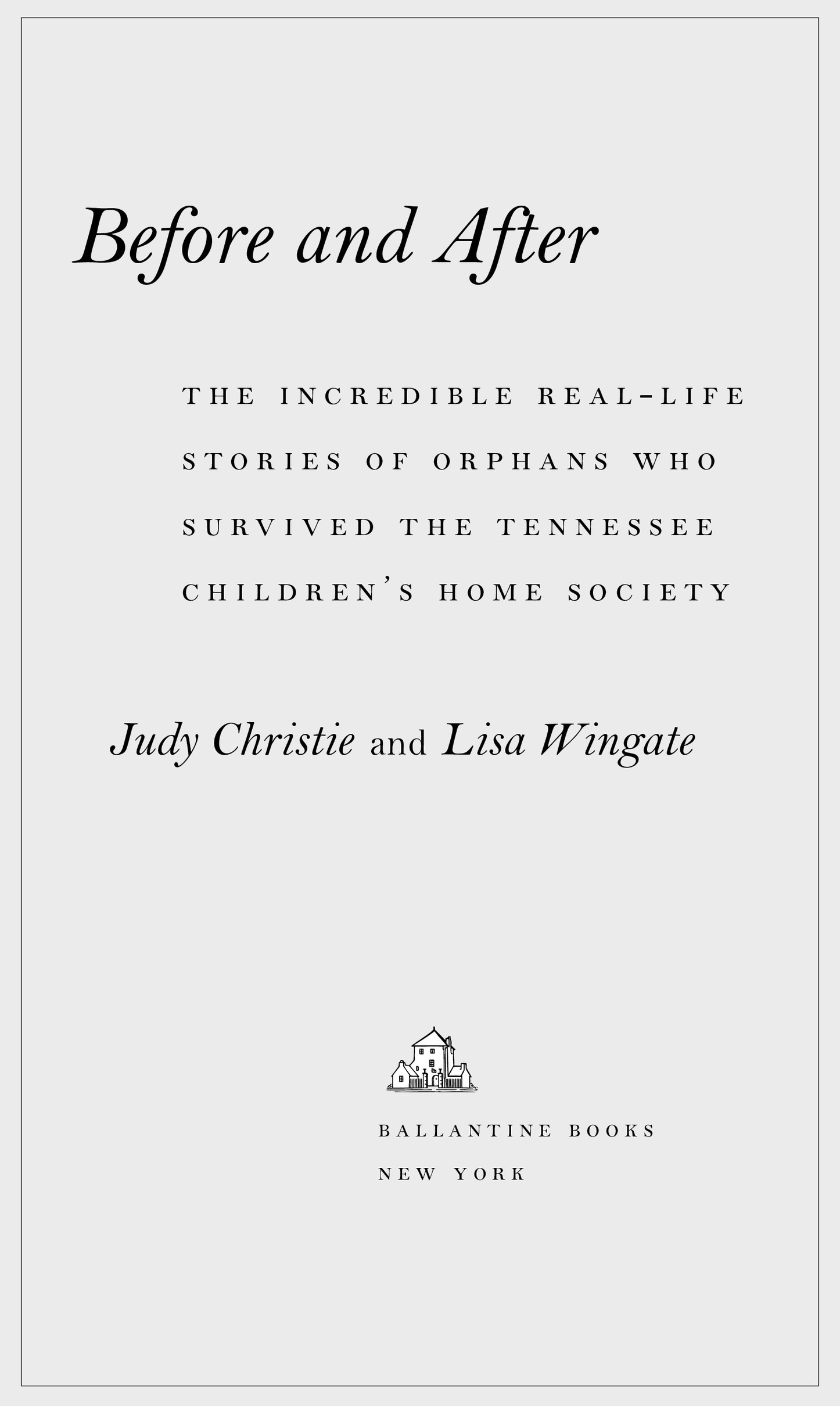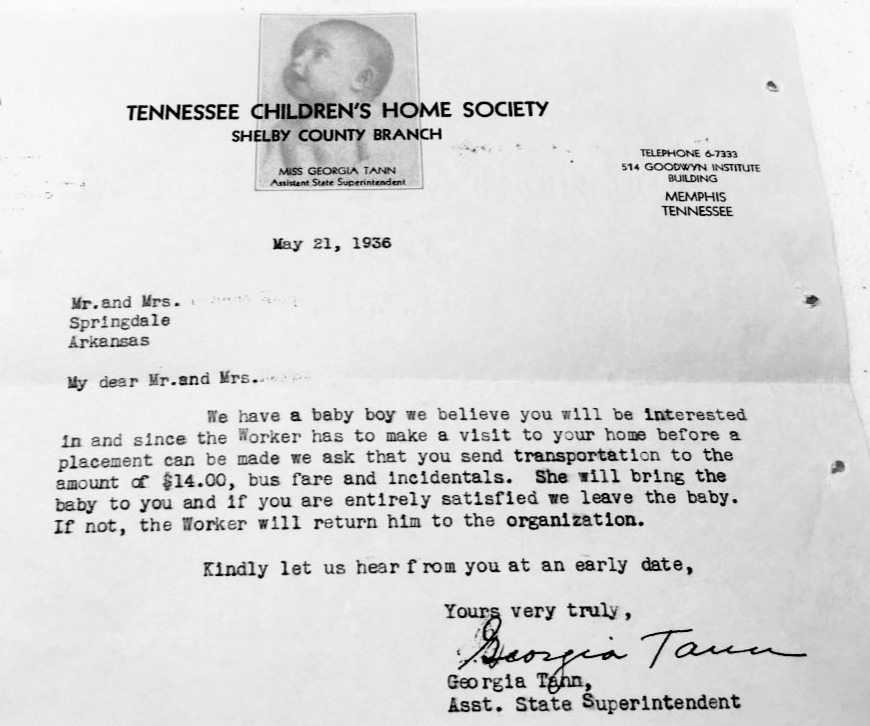All rights reserved.
Published in the United States by Ballantine Books, an imprint of Random House, a division of Penguin Random House LLC, New York.
B ALLANTINE and the H OUSE colophon are registered trademarks of Penguin Random House LLC.
Photo credits are located on .
N AMES: Christie, Judy Pace, author. | Wingate, Lisa, author.
T ITLE: Before and after : the incredible real-life stories of orphans who survived the Tennessee Childrens Home Society / Judy Christie and Lisa Wingate.
D ESCRIPTION: First edition. | New York : Ballantine Books, [2019]
I DENTIFIERS: LCCN 2019034565 (print) | LCCN 2019034566 (ebook) | ISBN 9780593130148 (hardcover) | ISBN 9780593130155 (ebook)
S UBJECTS: LCSH: Tennessee Childrens Home Society Corrupt practicesHistory. | Adoption agenciesCorrupt practicesTennesseeHistory. | Family reunificationTennesseeCase studies.
C LASSIFICATION: LCC HV875.56.T2 C47 2019 (print) | LCC HV875.56.T2 (ebook) | DDC 362.73092/2768dc23
LETTER FROM A TENNESSEE CHILDRENS HOME SOCIETY ADOPTEE TO HER UNKNOWN BIRTH FAMILY
FROM THE AUTHORS
T HESE STORIES ARE AS REMEMBERED and generously told by Tennessee Childrens Home Society adoptees and their families. To respect their privacy, we have changed the names of adoptees and family members, with the exception of wonderful actors Stephen Smiley Burnette, his daughter, Elizabeth, and his parents, the incomparable Smiley and Dallas Burnette.
IN OUR HEARTS, WE WILL always hold sacred the true names of each of the people we have gotten to know through their stories.
PROLOGUE
J ULY 1950 IS A HOT, uneasy month in West Tennessee.
The United States enters the Korean War. Fear of a third world war hovers while the region still grapples with the aftereffects of the second one. The stock market plunges. As if that is not enough, boll weevils plague cotton crops and devastate farmers trying to eke out a living.
Tumult of a different sort, though, brews for a young pregnant woman. She has been sent out of state with her three-year-old son, her sister, and a nephew to await the birth of her second child.
A house is provided. Expenses taken care of.
But the largesse comes at a high price.
She has agreed to hand her baby over to Georgia Tann, who has run a questionable orphanage in Memphis for more than twenty-five years. Rumors about Tanns toxic adoption practices swirl like a hot wind on a dusty day, and they are about to hit gale force.
Tanns empire at the Tennessee Childrens Home Societyshortened to TCHS by those familiar with the operationhas been built with a combustible blend of desperate pregnant women, shattered children, vulnerable poverty-stricken families, eager adoptive parents, powerful politicians, ego, and greed.
But this young mothers life is complicated, and Tann offers a solution.
A sweet baby girl is born on Monday, July 10, 1950.
Five days later, a TCHS worker whisks the newborn away. The traumatized mother is left behind with her preschool-age son. The baby girl will not see her brother again for four decades. The aunt, who has come along as a companion on this sad journey, will keep the secret from family and friends back home, intending to take it to her grave.
On July 26, the infant is delivered to a new set of parentsa couple with turmoil of its own.
Scarcely two weeks old, the tiny girl is on a path that will shape everything she becomes. Whisked away with the speed of a wartime ballistic missile, she will spend most of her life piecing together the mystery of her birth and early yearsand wondering how things might have been different.
PART ONE
Truth Meets Fiction
CHAPTER 1
REAL-LIFE ADOPTEES
Have you considered a reunion?
C ONNIE WILSON IS RELAXING IN her condo in Southern California with her beloved Labradoodle, Jackson, when the email arrives.
Oh my gosh, Connie! a book-club friend from Arizona writes. Have you read Before We Were Yours?
Its June 2017, and the novel by Lisa Wingate is brand-new. Connie has not heard of it. But faster than her pup can nudge her to play tug-of-war, she downloads a digital copy. In only forty-eight hours, she devours it, tamping down emotions as she reads. The fictionalized story about children adopted through the Tennessee Childrens Home Society is oh so familiar to her.
Connies life is historic in a way she would rather have avoided: she is one of the last babies placed by the scandal-ridden orphanage. In her late sixties when she, Lisa, and I meet, Connie is one of the youngest members of a unique and uncomfortable clubliving adoptees connected to TCHS. People whose lives were irrevocably altered at the hands of Georgia Tann. For Connie and thousands like her, events that took place decades ago are difficult to place in the past. The effects remain ever present.
On September 11, 1950, just two months after Connies birth, a criminal investigation into Tanns adoption practices was announced. Orphanage funds were cut, and the babies on hand were left in limbo. Connies adoption was held up, and her guardianship was transferred from TCHS to the Tennessee Department of Public Welfare. That was when she joined the tail end of a decades-long line of sad statistics.
Under the autocratic control of Georgia Tann, and thanks to her effective grip on look-the-other-way political and civic leaders, TCHS managed to operate in Memphis from 1924 to 1950 without scrutiny or interference. Approximately five thousand children, many of whom were not actually orphaned, passed through the agencys doors. An unknown number, estimated at five hundred, perished in unregulated, often squalid, holding facilities. Others were delivered into homes that faced little to no scrutiny, to parents who, for a host of reasons, could not adopt conventionally.
These real-life stories left their mark on ordinary people, now in the final season of their lives, as they pass along their experiences with TCHS and Tanns deeds to future generations through their personal accounts of what happenedand through their DNA.
A blend of what was happening in the world, from the Great Depression to World War II and the Holocaust, and including the stigma of unwed motherhood, led to the growth of Tanns network for obtaining and placing children. Poverty-stricken mothers gave up babies out of desperation; unmarried young women were not allowed to keep their newborns because of the taint of illegitimacy; and poor parents, hard at work, often unable to afford babysitters, found their children lured from front yards and into Tanns chauffeur-driven black limousine as it glided around Tennessee and Arkansas. With her paid network of doctors, social workers, and even boardinghouse owners, Tann snatched babies up as soon as they became available.

